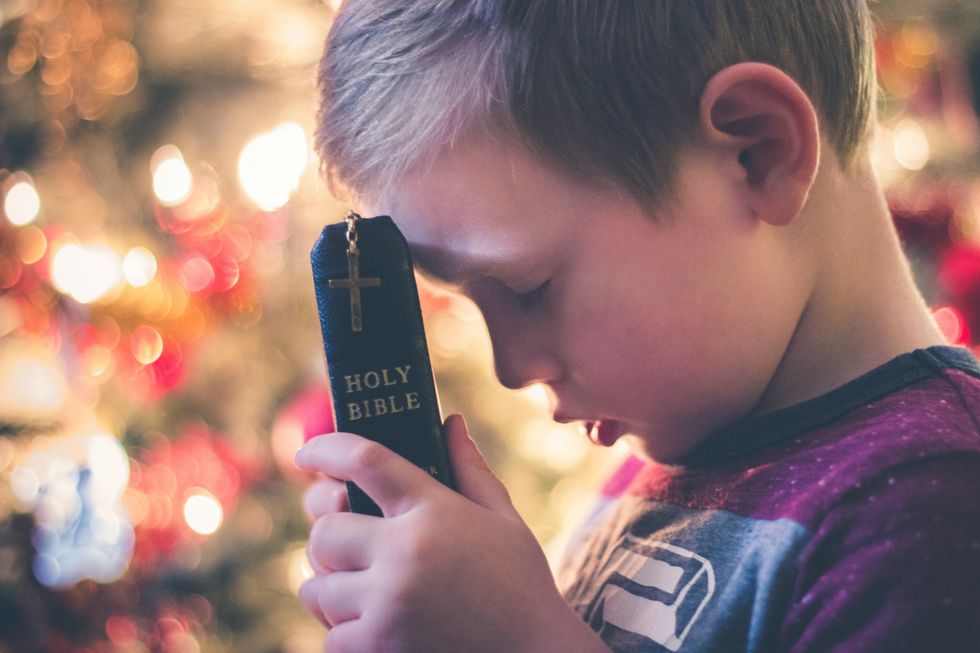Death is not something people discuss casually. Instead, we would rather avoid any talk of death. And it is easy to see why talking about death is a faux pas. The moment death or dying becomes a part of the conversation, people begin to feel awkward.
The hardest part about dealing with death is knowing what to say. Or at least, I think so. When someone dies, there is hardly anything you can say to their loved ones to make it hurt less.
Not too long ago, my best friend lost her mother to cancer. Her mother was her best friend. The hospital was dimly lit and we passed by the gift shop. Shortly after, she sank onto the floor. We moved her to the nearest seating area, and she began to cry.
She said, "My mom is dying." I didn't know what I could have said differently. Maybe I shouldn't have said anything at all. My response was, "Don't worry. It will get better."
The sharp nudge I felt at my side was my boyfriend's disappointment in what I said. He would later pull me aside and say, "That's not the right thing to say. She's losing her mom, how can things get better?"
While I meant what I said with the best of intentions, he was right. I just said her future without her mom would be better than the life she led with her mom in it. Although that's not what I intended to say, it sounded a lot like that. But what could I say instead?
This past weekend, my mother's uncle passed away. He was an important person in her life. I never got the chance to meet him. I had to talk about death a lot this past weekend. I know that we all die and that I'll die someday too.
I don't know what being dead is like, because no one does. I wish I knew so I could know whether there is a place spirits go. I want to know whether to conduct a funeral or throw an event celebrating the life of the person who has passed.
I put so many people in an uncomfortable position by talking about my great-uncle's passing. I told so many people, but only because it seemed relevant. Maybe I should have considered how they would feel being on the receiving end of the information. I had to call off work for three days.
That was a weird conversation, especially when my co-manager asked me why he needs to work for three whole days. I told him my great-uncle is dead. He didn't know what to say, so he stuck to what he knew. He used the reliable phrase "sorry for your loss."
I don't know what possessed me to say what I said not too long after he said this, but I said, "I should be back soon but people keep dying out here." That was really an internal thought that spilled out, and he got quiet on the other end of the line.
I was mulling over not just a death that happened to the family, but over death as a universal concept.
While I was away, I had people calling and texting me about work-related issues. I couldn't think about work and mortality at the same time. I needed to free up space in my own mind to think about death. I told everyone I was away for the funeral. Each person instantly either said something along the lines of "sorry for your loss" or absolutely nothing in response. It makes sense.
Death is stigmatized in our culture. The solution is to talk about death openly. Even if we don't always know what to say, we can at least stop future generations from feeling anxiety or discomfort about death.
As I've learned, death is painful, whether it happens to you or someone else. It is difficult to cope with it both directly and indirectly. Silence can be powerful. Listening is much more valuable than talking when comforting someone about death and dying.
An open and honest conversation about death is necessary for young children, possibly even early in their lives. Then again, who's to say? Not me, because I am the person who cracks awkward jokes instead of confronting my pain.







 Christmas and New Year gift card
Photo by
Christmas and New Year gift card
Photo by  butter cookies on plate
Photo by
butter cookies on plate
Photo by  boy holding Holy
boy holding Holy 









